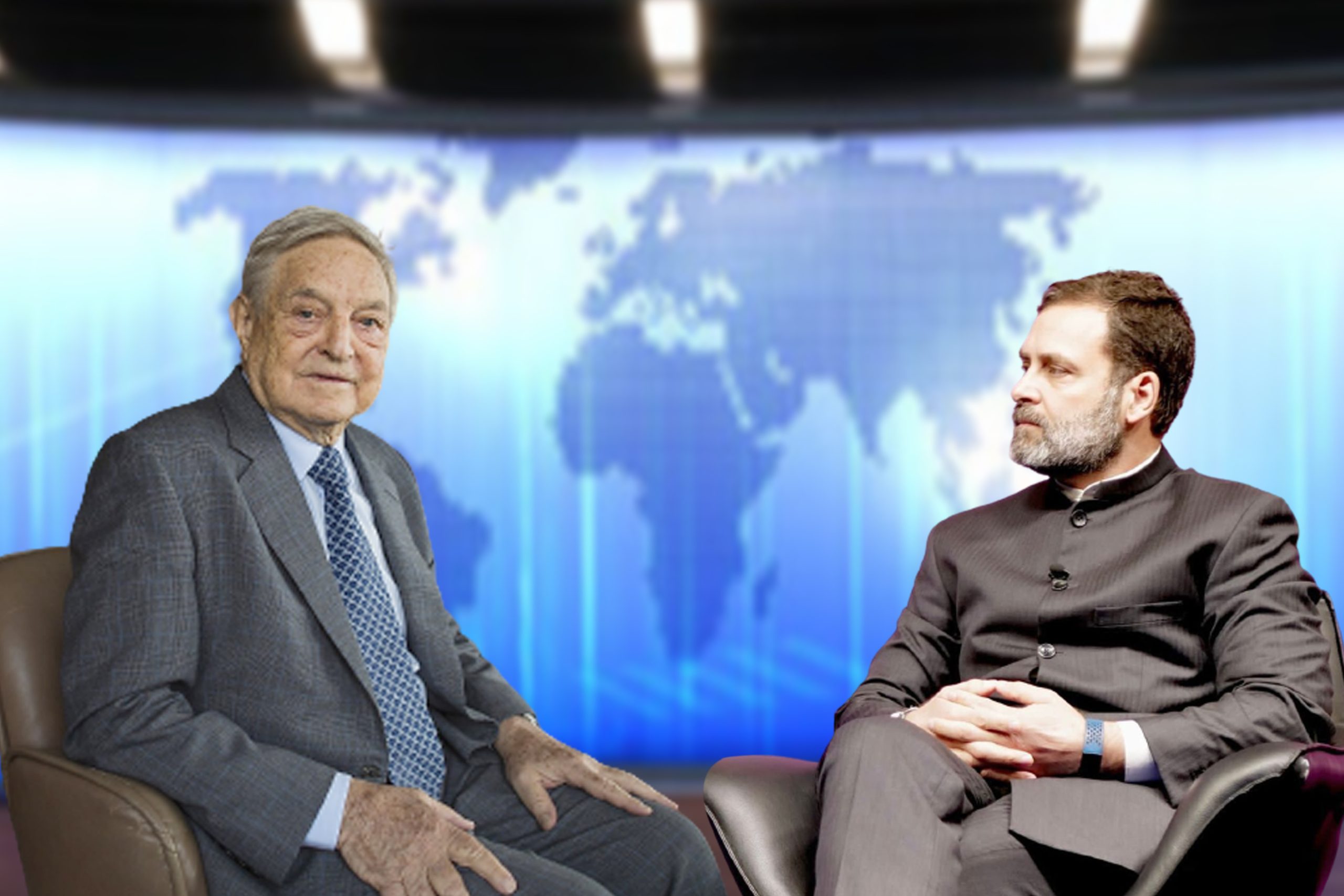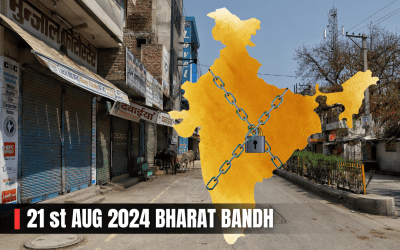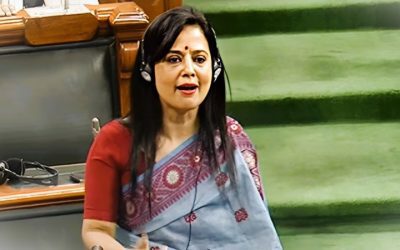In the ever-evolving world of politics, controversies are bound to arise, often stemming from clashes between political parties and their leaders. One such recent controversy has emerged in India, where the Bhartiya Janata Party (BJP) and the Indian National Congress (INC) have engaged in a heated exchange involving the Hungarian-born US investor and philanthropist, George Soros. This blog aims to shed light on the key players, their allegations, and the larger implications of this political feud.
The Enigma of George Soros
George Soros, a 92-year-old billionaire with a net worth of $8.5 billion, has carved a prominent position in the world of finance and philanthropy. Born in Hungary during the tumultuous times of the Nazi occupation, Soros experienced firsthand the atrocities of war. His life’s trajectory led him to the United States, where he established himself as a highly successful investor and launched his hedge fund in 1973.
Beyond his financial achievements, Soros is known for his outspoken views and his commitment to promoting democracy and freedom through the Open Society Foundation. This organization has supported numerous civil society groups worldwide, championing causes that align with its vision. However, his involvement in political affairs and his critical stance on Prime Minister Narendra Modi have made Soros a lightning rod for controversy.
The BJP’s Allegations
The recent controversy surrounding Soros began when the BJP’s IT cell chief, Amit Malviya, faced charges related to promoting enmity between different social groups through a video mocking Rahul Gandhi, a prominent leader of the INC. In response, the BJP raised allegations against Gandhi’s visit to the United States, linking it to George Soros.
During a press conference, Union minister Smriti Irani claimed that Gandhi had associated himself with individuals of questionable credentials during his US visit, including close aides of Soros. Irani further accused Soros of attempting to destabilize the democratically elected Indian government, based on his previous statements and affiliations. These allegations, while politically motivated, have added fuel to the already contentious political climate.
The Congress Response and Implications
The INC, in its defense, has labeled the allegations against Gandhi as baseless and an attempt to divert attention from more pressing issues. They argue that Gandhi’s visit was focused on global partnerships, discussions on key challenges, and exploring avenues for economic growth. However, the controversy has gained traction, captured public attention and fueling further polarization between the two political parties.
The implications of this political feud extend beyond the personal accusations against George Soros. It highlights the larger struggle for power and influence in Indian politics, where parties attempt to discredit each other by targeting individuals and their associations. Such tactics divert attention from pressing socio-economic issues and hinder constructive political discourse.
Union Minister Smriti Irani launched a sharp attack on the Congress after the Karnataka Police lodged an FIR against the BJP’s IT cell chief Amit Malviya over a video posted by him with certain references against Congress leader Rahul Gandhi. Terming the police action as “suppression of truth”, the BJP demanded to know from the Congress whether it was true that Mr. Gandhi was “hobnobbing” with those associated with businessman-philanthropist George Soros.
Ms. Irani on Wednesday accused Mr. Gandhi of having links with Mr. Soros and meeting people that are funded by the American businessman. “The question that has been left unanswered by the Congress is this: Is it true that Rahul Gandhi met Sunita Viswanath during his trip to the U.S.?… When it is clear to every Indian what George Soros intends to do, why is Rahul Gandhi hobnobbing with those who are funded by Soros,” asked Ms. Irani at a press conference held at the BJP headquarters in New Delhi.
Ms. Viswanath is an Indian-American activist who has worked in women’s and human rights organizations. She co-founded the human rights organizations Women for Afghan Women and Hindus for Human Rights.
This is not the first time that the BJP took on Mr. Soros accusing him of having “ill intention to intervene in the democratic process of India” and wanting “a government pliable to his [Mr. Soros’s] needs.” Earlier this year, Mr. Soros had said that the turmoil in Gautam Adani’s business empire had shaken the faith in India and threatened investor confidence and that it could open “the door to a democratic revival” in the country.
“It is also evident that this is not the only Soros connection. Even during the Bharat Jodo Yatra in Karnataka, the global vice-president of the Open Society Foundation, funded by George Soros, was found accompanying Rahul Gandhi. What is extremely distressing is the link with the Islamic Circle of North America. Those in the public domain who will research how the registration process for NRI interaction with Rahul Gandhi in New York ensued will find contact of Tanzeem Ansari – he has an organizational link with Jamaat-e-Islami,” said Ms. Irani on Wednesday. She also referred to a resolution passed by the U.S. House of Representatives in February 2018 against “theocratic organizations of South Asia” to bolster her point.
“It is expected that the Congress party given its draconian past will leverage any instrument available to it, to stifle those who voice an opinion against the Gandhi family. The ‘Sorosian West’ looks at [Rahul] Gandhi as a pawn to not just checkmate Prime Minister [Narendra] Modi but also India. To file an FIR, just because truth was spoken, freshens the memories of Emergency and how Gandhi family will go to any extent to suppress the truth,” she said.
The FIR was filed on a complaint by Karnataka Pradesh Congress Committee member Ramesh Babu over a tweet by Mr. Malviya of a video with captions “Rahul Gandhi is dangerous and playing an insidious game” and “More dangerous are people who are pulling strings of #Raga like Sam P, staunchly anti-India, they leave no stone unturned to defame India overseas, just to embarrass Hon’ble PM @Narendramodi ji”. Mr. Malviya has been booked under sections 153(A), 120(B), 505(2) and 34 of the IPC which pertain to promoting enmity between different groups on grounds of religion, race, place of birth, residence, language, and ‘doing acts prejudicial to maintenance of harmony’ and conspiracy.
The BJP’s Accusations against George Soros
The BJP’s allegations against George Soros extend beyond his association with Rahul Gandhi and his aides. They argue that Soros has a history of intervening in the democratic processes of various countries, using his wealth and influence to manipulate political outcomes. The party points to Soros’ statement regarding Gautam Adani’s business empire as evidence of his ill intentions towards India’s economic stability.
Moreover, the BJP raises concerns about the Open Society Foundation, founded by Soros, and its support for various civil society groups. They argue that some of these organizations have been involved in activities that are detrimental to India’s national interest, and Soros’ funding contributes to their operations. The BJP highlights the global vice-president of the Open Society Foundation accompanying Rahul Gandhi during the Bharat Jodo Yatra in Karnataka, suggesting a deeper connection between the Congress leader and Soros’ network.
Congress’ Defense and Counter-arguments
In response to the BJP’s allegations, the Congress party vehemently denies any wrongdoing on Rahul Gandhi’s part. They argue that the accusations are politically motivated, aiming to divert attention from more pressing issues that require the government’s focus. The Congress emphasizes that Rahul Gandhi’s visit to the United States was primarily aimed at strengthening global partnerships and discussing crucial challenges facing India, such as economic growth and development.
Furthermore, the Congress questions the BJP’s selective targeting of individuals and their associations. They argue that the focus should be on addressing the country’s socio-economic issues rather than engaging in personal attacks and attempting to discredit political opponents. The party urges the public to consider the motivations behind such accusations and to prioritize constructive political discourse over partisan power plays.
Implications of the Political Feud
The ongoing controversy involving George Soros and the political parties in India highlights the broader struggle for power and influence within the country’s political landscape. It underscores the tactics employed by political parties to undermine each other by targeting individuals and their associations. Such strategies often distract from the pressing socio-economic issues that require attention and hinder the growth of constructive political dialogue.
Furthermore, the controversy sheds light on the intersection of international actors and domestic politics. It raises questions about the extent to which external influences, such as foreign funding and affiliations, impact the political dynamics of a nation. This aspect of the controversy prompts a broader discussion on the regulation and transparency of foreign contributions in political activities.
The BJP’s Accusations against George Soros
In addition to the allegations previously mentioned, the BJP accuses George Soros of having a broader agenda to undermine the nationalist ideology promoted by Prime Minister Narendra Modi and his government. They argue that Soros, through his support for various civil society groups and organizations, seeks to promote an alternative narrative that aligns with his own liberal and globalist views. The BJP contends that this interference in domestic politics undermines the sovereignty and self-determination of India.
Furthermore, the BJP points to Soros’ involvement in funding and supporting progressive movements and causes worldwide, suggesting a pattern of ideological intervention in the political affairs of different nations. They claim that Soros has been known to support and finance campaigns that advocate for causes such as LGBTQ+ rights, women’s rights, and religious freedom, which they view as contradictory to the values and cultural traditions of India.
Congress’ Defense and Counter-arguments
In their defense against the BJP’s allegations, the Congress party argues that the focus on George Soros and Rahul Gandhi’s alleged associations is a diversionary tactic employed by the BJP to shift attention away from their own shortcomings. They claim that the BJP is using Soros as a scapegoat to undermine legitimate political discourse and dissent against their policies.
The Congress also highlights the importance of engaging with a wide range of individuals and organizations, both domestically and internationally, to foster diplomatic relations, exchange ideas, and seek support for various initiatives. They contend that such interactions are essential for a nation’s progress and should not be misconstrued as evidence of ulterior motives or external interference.
Implications of the Political Feud
The ongoing political feud between the BJP and the Congress, with George Soros at its center, has significant implications for India’s democratic fabric. It highlights the polarization and intense rivalries that often overshadow substantive policy debates and hinder constructive governance. The focus on personal attacks and conspiracy theories detracts from addressing critical issues such as economic development, social welfare, and governance reforms.
Moreover, the controversy surrounding George Soros underscores the challenges faced by civil society organizations and philanthropists in navigating the complex political landscape. It raises questions about the appropriate role of such entities in shaping public discourse and influencing policy, as well as the need for transparency and accountability in their operations.
Additionally, the controversy brings to the fore the need for robust regulations and oversight mechanisms to ensure that foreign funding in political activities is transparent and does not compromise national interests. Striking the right balance between safeguarding democratic values, including freedom of expression and association, and preventing undue external influence requires careful consideration and deliberation.
Conclusion
The political controversy surrounding George Soros, Rahul Gandhi, and the allegations made by the BJP continues to raise pertinent questions about the intersection of politics, foreign influences, and the democratic process in India. As responsible citizens, it is crucial for us to critically analyse the motivations behind the accusations, promote constructive political discourse, and demand transparency and accountability from our political leaders. By doing so, we can ensure a more informed and engaged democracy that focuses on the issues that truly matter to the progress and well-being of the nation.
Also read:








0 Comments